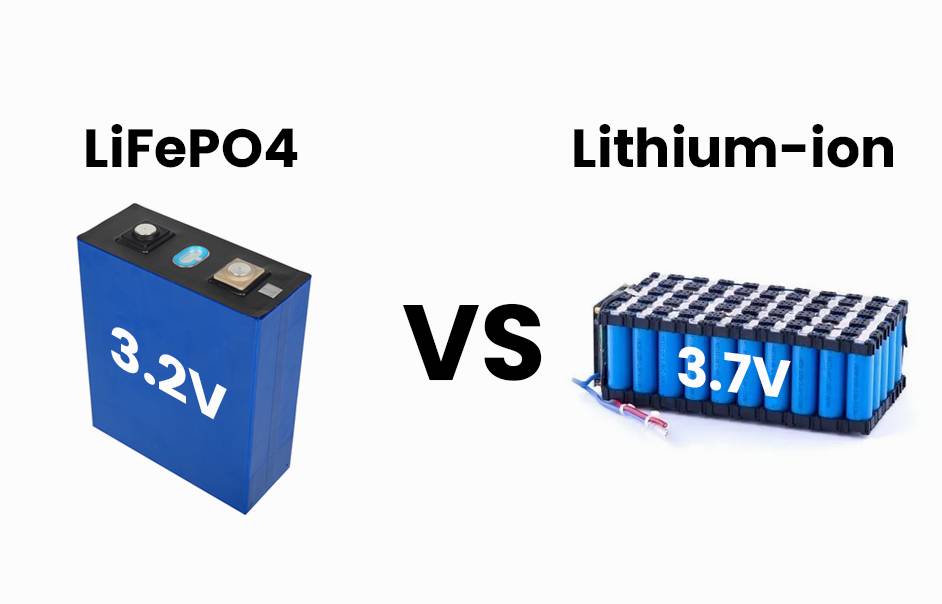- Forklift Lithium Battery
-
48V
- 48V 210Ah
- 48V 300Ah
- 48V 420Ah (949 x 349 x 569 mm)
- 48V 420Ah (950 x 421 x 450 mm)
- 48V 456Ah
- 48V 460Ah (830 x 630 x 590 mm)
- 48V 460Ah (950 x 421 x 450 mm)
- 48V 460Ah (800 x 630 x 600 mm)
- 48V 460Ah (820 x 660 x 470 mm)
- 48V 500Ah
- 48V 560Ah (810 x 630 x 600 mm)
- 48V 560Ah (950 x 592 x 450 mm)
- 48V 600Ah
- 48V 630Ah
-
48V
- Lithium Golf Cart Battery
- 12V Lithium Battery
12V 150Ah Lithium RV Battery
Bluetooth App | BCI Group 31
LiFePO4 Lithium
Discharge Temperature -20°C ~ 65°C
Fast Charger 14.6V 50A
Solar MPPT Charging - 24V Lithium Battery
- 36V Lithium Battery
- 48V Lithium Battery
-
48V LiFePO4 Battery
- 48V 50Ah
- 48V 50Ah (for Golf Carts)
- 48V 60Ah (8D)
- 48V 100Ah (8D)
- 48V 100Ah
- 48V 100Ah (Discharge 100A for Golf Carts)
- 48V 100Ah (Discharge 150A for Golf Carts)
- 48V 100Ah (Discharge 200A for Golf Carts)
- 48V 150Ah (for Golf Carts)
- 48V 160Ah (Discharge 100A for Golf Carts)
- 48V 160Ah (Discharge 160A for Golf Carts)
-
48V LiFePO4 Battery
- 60V Lithium Battery
-
60V LiFePO4 Battery
- 60V 20Ah
- 60V 30Ah
- 60V 50Ah
- 60V 50Ah (Small Size / Side Terminal)
- 60V 100Ah (for Electric Motocycle, Electric Scooter, LSV, AGV)
- 60V 100Ah (for Forklift, AGV, Electric Scooter, Sweeper)
- 60V 150Ah (E-Motocycle / E-Scooter / E-Tricycle / Tour LSV)
- 60V 200Ah (for Forklift, AGV, Electric Scooter, Sweeper)
-
60V LiFePO4 Battery
- 72V~96V Lithium Battery
- Rack-mounted Lithium Battery
- E-Bike Battery
- All-in-One Home-ESS
- Wall-mount Battery ESS
-
Home-ESS Lithium Battery PowerWall
- 24V 100Ah 2.4kWh PW24100-S PowerWall
- 48V 50Ah 2.4kWh PW4850-S PowerWall
- 48V 50Ah 2.56kWh PW5150-S PowerWall
- 48V 100Ah 5.12kWh PW51100-F PowerWall (IP65)
- 48V 100Ah 5.12kWh PW51100-S PowerWall
- 48V 100Ah 5.12kWh PW51100-H PowerWall
- 48V 200Ah 10kWh PW51200-H PowerWall
- 48V 300Ah 15kWh PW51300-H PowerWall
PowerWall 51.2V 100Ah LiFePO4 Lithium Battery
Highly popular in Asia and Eastern Europe.
CE Certification | Home-ESS -
Home-ESS Lithium Battery PowerWall
- Portable Power Stations
Can You Mix Different Brands of LiFePO4 Batteries?

Mixing different brands of LiFePO4 (Lithium Iron Phosphate) batteries is generally not recommended due to potential risks and performance issues. While it may seem convenient to combine batteries from various manufacturers, differences in specifications, internal resistance, and quality can lead to imbalances that compromise safety and efficiency. Understanding these factors is crucial for optimal battery performance.
Table of Contents
ToggleWhat are the risks of mixing different brands of LiFePO4 batteries?
The primary risks associated with mixing different brands of LiFePO4 batteries include:
- Performance Imbalance: Different manufacturers may have variations in capacity, voltage, and internal resistance, leading to uneven charging and discharging.
- Safety Hazards: Mismatched batteries can result in overcharging or under-discharging, which increases the risk of thermal runaway or damage.
- Shortened Lifespan: The overall lifespan of a mixed battery pack can be significantly reduced due to irregular charging cycles and stress on weaker cells.
Chart: Risks of Mixing Different Brands
| Risk | Description |
|---|---|
| Performance Imbalance | Uneven charging/discharging |
| Safety Hazards | Increased risk of thermal runaway |
| Shortened Lifespan | Irregular cycles reduce lifespan |
How do battery specifications affect performance when mixing brands?
Battery specifications such as voltage, capacity, and internal resistance play a crucial role in determining how well batteries perform together. If these specifications differ significantly between brands, it can lead to:
- Voltage Mismatch: Different nominal voltages can cause one battery to overwork while another remains underutilized.
- Capacity Differences: Batteries with varying capacities will discharge at different rates, leading to inefficiencies and potential damage.
- Internal Resistance Variations: Discrepancies in internal resistance can create uneven load distribution, resulting in overheating or decreased performance.
Chart: Impact of Specifications on Performance
| Specification | Effect on Performance |
|---|---|
| Voltage | Can cause overworking/underutilization |
| Capacity | Leads to inefficiencies |
| Internal Resistance | Creates uneven load distribution |
What precautions should be taken if mixing different brands?
If you find it necessary to mix different brands of LiFePO4 batteries, consider the following precautions:
- Match Specifications: Ensure that the voltage, capacity, and internal resistance are as closely aligned as possible.
- Use a High-Quality Battery Management System (BMS): A robust BMS can help manage charging and discharging more effectively across mixed brands.
- Regular Monitoring: Keep an eye on the performance metrics of each battery to identify any imbalances early on.
Chart: Precautions for Mixing Brands
| Precaution | Description |
|---|---|
| Match Specifications | Align voltage, capacity, and resistance |
| Use Quality BMS | Manage charging/discharging effectively |
| Regular Monitoring | Track performance metrics |
Are there any benefits to using mixed brands in a battery pack?
While generally discouraged, there may be some limited benefits to using mixed brands if done carefully:
- Cost Efficiency: Mixing lower-cost batteries with higher-performance ones might reduce initial investment costs.
- Availability: In some cases, specific models may not be available from a single brand, necessitating a mix for immediate needs.
- Flexibility: Using different brands can allow for customization based on specific requirements or applications.
However, these potential benefits must be weighed against the risks involved.Chart: Potential Benefits of Mixing Brands
| Benefit | Description |
|---|---|
| Cost Efficiency | Reduced initial investment |
| Availability | Access to specific models |
| Flexibility | Customization based on needs |
How can you safely connect batteries of different brands?
To safely connect batteries from different brands:
- Ensure Compatibility: Confirm that all batteries have similar voltage ratings and capacities.
- Use Parallel Connections Only: If necessary, connect them in parallel rather than series to minimize risk.
- Implement a Comprehensive BMS: A good BMS will help balance the charge across all connected batteries and prevent over-discharge or overcharge conditions.
Chart: Safe Connection Practices
| Practice | Description |
|---|---|
| Ensure Compatibility | Match voltage ratings and capacities |
| Use Parallel Connections | Minimize risk by avoiding series connections |
| Implement BMS | Balance charge across all batteries |
Redway Power Insights
“While it might be tempting to mix different brands of LiFePO4 batteries for cost or availability reasons, it’s essential to understand the risks involved. Consistency in brand and specifications is key to ensuring safety and optimal performance.”
Industrial News
Recent advancements in battery technology have prompted discussions about compatibility among various lithium-based chemistries. As manufacturers strive for standardization in specifications, the conversation around mixing different battery brands continues. Industry experts emphasize the importance of adhering strictly to compatibility guidelines to avoid safety hazards while maximizing efficiency.
FAQ Section
Q: Can I mix LiFePO4 batteries from different manufacturers?
A: It is generally not recommended due to potential performance imbalances and safety risks.Q: What specifications should match when mixing batteries?
A: Voltage, capacity, and internal resistance should closely align for optimal performance.Q: What happens if I mix incompatible batteries?
A: Mixing incompatible batteries can lead to uneven charging/discharging, increased risk of thermal runaway, and shortened lifespan.Q: Is there any scenario where mixing might be acceptable?
A: If absolutely necessary, ensure that all specifications are matched as closely as possible and use a high-quality BMS.

Is it okay to use different brand batteries together?
It is not recommended to mix different brands of batteries due to variations in chemistries, voltage, and discharge rates. This can lead to imbalances and potential issues within the battery system.
- Chemistry and Voltage Variations: Different brands of batteries may have variations in chemistries and voltage, which can lead to imbalances when mixed together.
- Discharge Rate Differences: Batteries from different brands may have varying discharge rates, which can affect the overall performance and efficiency of the battery system.
- Optimal Performance and Compatibility: To ensure optimal performance and avoid potential issues, it is recommended to use batteries of the same brand and type within the system.
By using batteries of the same brand and type, you can maintain compatibility, optimize performance, and minimize the risk of imbalances within your battery system.
Are all LiFePO4 batteries the same?
No, all LiFePO4 batteries are not the same. They differ in build quality, types, dimensions, capacity, voltage rating, and features. Choosing the right LiFePO4 battery requires considering these variations.
- Build Quality and Specifications: LiFePO4 batteries can differ in build quality, dimensions, capacity, voltage rating, and features based on the manufacturer.
- Performance Characteristics: Different LiFePO4 batteries may exhibit variations in charging and discharging capabilities, cycle life, and overall performance.
- Choosing the Right Battery: When selecting a LiFePO4 battery, it is important to consider factors such as the specific application, desired capacity, and compatibility with the system.
By considering the build quality, specifications, and performance characteristics of LiFePO4 batteries, you can make an informed decision and choose the right battery for your needs.
Can you parallel different brand batteries?

Parallelizing different brand batteries is possible if they have the same chemistry and are fully charged, but it is generally not recommended due to variations in resistance, battery management systems (BMS), and other factors that can impact performance and safety.
- Technical Possibility: It is technically possible to parallelize different brand batteries if they have the same chemistry and are fully charged.
- Performance Variations: Mixing different brand batteries in parallel can introduce variations in resistance, BMS, and other factors, which can affect overall performance and safety.
- Recommendation: It is generally not recommended to parallelize batteries of different brands to ensure optimal performance, compatibility, and safety.
By using batteries of the same brand and type for parallel applications, you can minimize the risks associated with mixing different brand batteries and ensure a more reliable and efficient battery system.
Can I parallel two different LiFePO4 batteries?
Yes, you can parallel different LiFePO4 batteries together to increase the overall capacity of the battery bank. This allows for a larger storage capacity and is useful in various applications.
- Parallel Connection: Two different LiFePO4 batteries can be joined together in parallel to increase the overall capacity of the battery bank.
- Increased Storage Capacity: Paralleling LiFePO4 batteries allows for a larger storage capacity, which can be beneficial in applications requiring more energy storage.
- Application Flexibility: Parallel connections of different LiFePO4 batteries offer flexibility in designing battery systems to meet specific power and capacity requirements.
By parallel connecting different LiFePO4 batteries, you can expand the battery capacity and achieve greater energy storage capabilities for various applications.
Is it bad to mismatch battery brands?
Mismatching battery brands is not recommended as it can result in reduced battery performance and potential dangers. Different types or brands of batteries may have variations in chemistry, voltage, and other characteristics that can affect compatibility and overall performance.
- Reduced Performance: Mismatching different types or brands of batteries can lead to reduced battery performance due to variations in chemistry, voltage, and other characteristics.
- Compatibility Issues: Batteries from different brands may have variations in size, shape, and specifications, which can affect overall compatibility when used together.
- Safety Concerns: Mismatching battery brands can pose potential dangers, including the risk of battery leakage, overheating, or even explosions.
To ensure optimal battery performance and safety, it is recommended to use batteries of the same brand and type, following manufacturer guidelines and specifications.”
Can you mix old and new LiFePO4 batteries?
No, it is not recommended to mix LiFePO4 batteries of different brands. Additionally, mixing old and new batteries may affect the overall performance of the battery pack.
- Brand Variations: It is generally not recommended to mix LiFePO4 batteries of different brands due to variations in chemistry, quality, and performance.
- Aging and Usage Differences: Mixing old and new batteries can lead to differences in aging characteristics, usage history, and performance, which may result in imbalances within the battery pack.
- Optimal Performance: To ensure optimal performance and avoid potential issues, it is advisable to use LiFePO4 batteries of the same brand and similar age within the system.
By using LiFePO4 batteries of the same brand and similar age, you can maintain compatibility, optimize performance, and minimize the risk of imbalances within your battery system.
Can you mix different Ah batteries?
Mixing batteries of different amp-hours is not recommended. Differences in battery management systems, charging, and voltage can lead to imbalances and potential issues.
- Imbalances and Compatibility: Mixing batteries with different amp-hour ratings can lead to imbalances and compatibility issues due to differences in charging and discharging profiles.
- Performance Considerations: Batteries of the same amp-hour rating are designed to work together, ensuring optimal performance and avoiding potential complications.
- Safety Precautions: To maintain battery health and prevent potential issues, it is recommended to use batteries of the same amp-hour rating in your system.
By using batteries of the same amp-hour rating, you can ensure compatibility, optimize performance, and maintain the safety of your battery system.
Can you mix battery brands in a solar system?
Never mix and match batteries from different manufacturers or batteries with different model numbers, amp-hour capacities, or voltages in the same bank. Ensure you have a reliable battery balancer or Battery Management System (BMS) to manage batteries of different ages within the system.
- Compatibility: It is not recommended to mix battery brands in a solar system, especially batteries from different manufacturers or with different specifications.
- Performance Impact: Mixing batteries with different model numbers, amp-hour capacities, or voltages can affect the overall performance and efficiency of the system.
- Battery Management: To manage batteries of different ages within the system, it is advisable to use a reliable battery balancer or Battery Management System (BMS).
By avoiding the mixing of battery brands and ensuring compatibility within the solar system, you can optimize the performance and longevity of your battery bank.

























